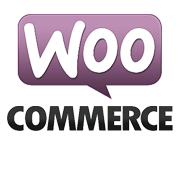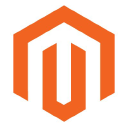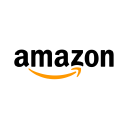
How We Developed A $3K/Month Ecommerce Personalization Platform
Note: This business is no longer running. It was started in 2018 and ended in 2023. Reason for closure: Shut down.
Hello! Who are you and what business did you start?
Hi everyone! I'm Shahram Anver and I am the co-founder of DataCue. We help eCommerce entrepreneurs sell more and improve conversion with an easy-to-use personalization platform. Unlike other personalization and upsell solutions, we change the entire experience, meaning we show each visitor relevant banners, notifications, and product recommendations.
Our sole mission is to help eCommerce entrepreneurs automate onsite conversion with minimum work required. This starts with the integration process. We've built an integration to Shopify, WooCommerce, Prestashop, and Magento. This means that any eCommerce store can get started with personalization in just under 15 minutes. Once installed, DataCue doesn't need any manual settings or rules. It just works in showing the right content to each visitor and improves the possibility to purchase.
In 2019, the eCommerce businesses that use DataCue have made over $2m in additional revenue and we showed more than 50 million recommendations to visitors around the world.
We make $3.5K in monthly revenue and have been growing at 40% m/m after the company was founded 18 months ago. We've raised $150K in equity-free grant so far. We invest everything back into the business. Our goal for 2020 is to be profitable so we are focusing on growth and marketing at the moment.

What's your backstory and how did you come up with the idea?
Ann and I started DataCue while on our honeymoon in Central America. In Cuba, we met a stranger who told us about a government-funded initiative for foreign entrepreneurs to start a business in Chile. I had previously founded a startup called Travel Iago in Singapore while working full-time as a data scientist at TripAdvisor. Ann was a management consultant at BCG in Singapore.
While working at TripAdvisor, I realized that only big companies have enough resources to access data to make the right business decisions. Small and medium businesses, on the other hand, lack resources and rely on their guts to make the next move. I've always felt that data should be democratized and accessible to all types of businesses. One of our missions at DataCue is to help small and medium businesses become better at using and understanding their data. While at TripAdvisor, I also noticed that most marketers spend time and effort focusing on paid channels like Google AdWords and Facebook Ads to bring traffic. However once their visitors land on the website, little is done to ensure that they end up with a purchase.
Ann shares my interest in online retail. She loves shopping online. Our daughter was recently born and while shopping for baby products, she noticed that her experience was far from desirable. Many websites, despite multiple visits at the same baby products, kept showing her the most irrelevant items like mobile and electronics. This infuriated her and she had to start her search from scratch.
So together, we believed we could do a better job. After we heard of this government-funded equity program in Chile from a stranger we randomly met in Cuba, we decided to apply. Once we were accepted, we both quit our jobs in Singapore and moved to South America to turn DataCue into a reality. And that's the start of DataCue in 2018.

The problem was I was the only techie between the two of us and to build a digital product, this was not going to work. I told Ann she had to pick up coding and she spent a long time self-learning Python and Panda. Today, our algorithm that powers DataCue recommendations were developed by Ann. How far she's come truly impresses me.
While we have to pay clients and our product is working well and stable, our sales and marketing efforts still need a lot of work. We've come to understand that nailing marketing and sales is the only way to reach our revenue targets. This is our current biggest challenge this quarter to grow DataCue.

Take us through the process of designing, prototyping, and manufacturing your first product.
For our very first prototype, we focused on having actual paying customers.
One of the key lessons from my previous startup (Travel Iago) was to build something someone wants to buy. At Travel Iago, I spent too much time coding and not enough time talking to actual users. When starting DataCue, I was adamant that we had to find actual paying customers before we even wrote our first line of code.
And this is where Ann's consulting and Powerpoint skills came in handy. We built a nice-looking deck with DataCue's features and met a bunch of people to pitch. DataCue was just an idea then. Doing this allowed us to understand which features our potential customers valued the most and what extra features they wanted to see. And of course, this was very helpful in validating our pricing.
Once we've got a client who agreed to pay, we got to work. This process took 2 months but it was invaluable in helping us refine what DataCue should look like and how we could be different after listening to all the pain points of available solutions in the market.
Our first client is on Shopify, that's why we decided to focus on releasing DataCue as an app on the Shopify app store. We would check out product reviews of similar solutions on the app store, G2, Capterra to understand what the customers really liked about the competitors.
Make sure before you spend any time developing the product to validate your idea. Go out there and talk to people, really find out that there's a market for what you're building.
We planned to finish building DataCue in 3 months, it took us close to a year to get accepted to the app store :)
We designed our first version of DataCue using Vue for the user-facing dashboard, Golang and Javascript on the backend to scale things easily. Our algorithm runs solely with Python.
I discovered a YC-backed startup called Webflow which was instrumental in helping us put our website together before we onboarded a designer. I found a free chat tool, Small chat, on Hacker News which I implemented on our website and dashboard for lead generation and customer support.
We focussed a lot on customer feedback. Being small, we did things that were not scalable like meeting our customers face to face almost every week, asking them what they liked or didn't like about the product. We then put everything down on Trello and used the customer feedback as part of the product iteration process.
Describe the process of launching the business.
Since our first client is on Shopify, our primary focus was finding more Shopify clients. We bought a list of Shopify stores on Fiverr and were doing a lot of cold emails/direct outreach on LinkedIn to reach people. Since we started in Chile, Chilean clients were surprisingly very receptive to cold emails. We always got a request to meet them for a demo. Direct outreach was the primary way that we used to acquire the first 10 paying customers.
After having met many customers, we realized that it was hard for customers to understand what we do just by reading our website. DataCue has a feature where we change banners dynamically, creating a unique 1:1 experience for everyone. It always took a 1:1 meeting for our customers to see what we mean when we say the entire homepage could be different for every visitor depending on their interests. That's why we invested in building a demo website which is a fake furniture shop. This acts as a product tour so that anyone coming to our website can see for themselves how DataCue works. It's also a great sales tool during in-person meetings.
At the same time, we also focused on online channels. We got our website sorted with Webflow and created a signup page so anyone could just install the solution. Our blogging is regularly updated to bring in relevant traffic.
However, our big break was when we officially launched on the Shopify app store. Prior to this, DataCue was just a private app. It was the first time new clients were acquired without a cold email. We got picked up by Shopify staff who listed DataCue on the main page of the app listing. This was great at boosting our traffic and we got more than 60 signups within a few days.
Financially we received more than $100,000 from Startup Chile as an equity-free grant. This allowed us to start a business, hire more people and spend some budget on sales and marketing.
Since launch, what has worked to attract and retain customers?
Post-launch, we're focusing a lot on marketing and PR to generate leads. Since we're small, most of our marketing channels are free or need very little money. We have listed DataCue on the official app store of the eCommerce platforms that we partner with.
We also rely on targeted Google ads to bring in traffic. The key with Google ads is to create a specific landing page for the keywords you're bidding for. This has worked well for us as our keywords are very targeted and they see a matching keyword when they come to our landing page. Use the custom audience option where you can filter for audiences by interests gives better targeting than just targeting people by location.
We also appear regularly on eCommerce marketing podcasts to generate awareness about personalization and bring traffic back to our website. I always look for pitching opportunities, it's one of the best ways to connect with investors or other people in the ecosystem who could connect you to potential clients. We also do a lot of experiments on our website to see what works. We use Google optimize to A/B test different pages as it's very easy to set up.
Understand who your clients are. And not just who they are as in where they are from, gender, geography, etc. Understand their reasons to buy your product and their willingness to pay. This will give you a much better sense of what your MVP should look like.
For new customers, we offer a 30-day money-back guarantee. We did free trials for a while but soon realized that monetization is another big challenge on its own. When we switched to a money-back guarantee, our conversion was lower but the signups were from genuine customers who were able to pay us now.
We still speak to our clients on a regular basis to get feedback. Personal relationship plays a very important role and we have great relationships with all our clients. This means we take customer support/success seriously. For larger accounts, we have a dedicated salesperson who also acts as an account manager. This keeps the relationship personal.
After using DataCue for at least 6 months, we do a full review of our impact on the client's business and come up with hard numbers like improvement in conversion and average order value. This is used for the case study that we publish on the website. We also request clients to leave us a review on the Shopify app listing.
How are you doing today and what does the future look like?
Our mission for DataCue is to be the go-to conversion optimization tool for eCommerce businesses. We want to automate onsite conversion with personalization. We understand that it's a crowded space but we believe that simplicity and automation are key to winning in this competitive industry. That's our pricing is performance-based. We charge a 2% commission only on additional revenue through DataCue recommendations. Since we maintain good relationships with our clients and our solution does what's described, we have a very low churn.
We have been growing 30% m/m for the past 3 months. We are focusing and investing heavily in marketing. The team spends a lot of time experimenting with different distribution channels to see what is best before doubling down on it.
One challenge that we have is personalization is a very niche topic. Most people don't do a search on personalization and related keywords directly. So we have to build content around DataCue's benefits such as improving conversion, conversion funnel optimization and improving user experience.

Through starting the business, have you learned anything particularly helpful or advantageous?
Focus on important work. You may have heard of 80/20 rule where 20% of the work drives 80% of the impact. I recently came across another mind-blowing observation that if we apply the 80/20 rule on the original rule itself, this translates to 64% of work coming from only 4% of the effort. I found this groundbreaking and have since focused my time on highly important and strategic work while delegating the rest.
I think every entrepreneur needs to talk to its users on a regular basis. It's way easier to busy yourself with adding new features that no one wants in your apartment than talking to people and hearing some harsh feedback. Make sure you build something people are willing to pay their hard-earned money with.
Another learning is to figure out your channels quickly. It's the only way your company can grow. Think of as many channels as possible that you think can work for your solution, spend minimum money experimenting with each channel and double down on the top 2-3.
What platform/tools do you use for your business?
Backend
- Golang
- Google cloud
- Python
Frontend
- Vue
- Javascript
Other tools
- Slack
- Webflow (website)
- Mailerlite (email newsletters)
- Hotjar
- Trello
- Dropbox
- Google Optimize (A/B testing)
What have been the most influential books, podcasts, or other resources?
Books
Advice for other entrepreneurs who want to get started or are just starting out?
Brace yourself, it's going to be a wild ride.
Make sure before you spend any time developing the product to validate your idea. Go out there and talk to people, really find out that there's a market for what you're building. Better, find someone who agrees to pay you something (even at a heavily discounted rate) to use your first prototype.
Understand who your clients are. And not just who they are as in where they are from, gender, geography, etc. Understand their reasons to buy your product and their willingness to pay. This will give you a much better sense of what your MVP should look like.
Are you looking to hire for certain positions right now?
Yes! We're looking to hire 1 folk to be part of our engineering/product development team. The focus will be to help us build a scalable product as we onboard more customers and incorporate new features to the platform.
Someone who is a self-starter. Also perseverance, drive, and patience are great assets that we look for in our team.
Where can we go to learn more?
If you have any questions or comments, drop a comment below!

Download the report and join our email newsletter packed with business ideas and money-making opportunities, backed by real-life case studies.

Download the report and join our email newsletter packed with business ideas and money-making opportunities, backed by real-life case studies.

Download the report and join our email newsletter packed with business ideas and money-making opportunities, backed by real-life case studies.

Download the report and join our email newsletter packed with business ideas and money-making opportunities, backed by real-life case studies.

Download the report and join our email newsletter packed with business ideas and money-making opportunities, backed by real-life case studies.

Download the report and join our email newsletter packed with business ideas and money-making opportunities, backed by real-life case studies.

Download the report and join our email newsletter packed with business ideas and money-making opportunities, backed by real-life case studies.

Download the report and join our email newsletter packed with business ideas and money-making opportunities, backed by real-life case studies.

















